
The Karolinska Institute is a research-led medical university in Solna within the Stockholm urban area of Sweden and one of the foremost medical research institutes globally. The Nobel Assembly at the Karolinska Institute awards the Nobel Prize in Physiology or Medicine. The assembly consists of fifty professors from various medical disciplines at the university. The current vice-chancellor of Karolinska Institute is Annika Östman Wernerson, who took office in March 2023.
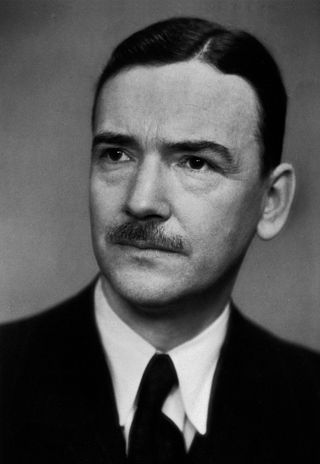
Ulf Svante von Euler was a Swedish physiologist and pharmacologist. He shared the Nobel Prize in Physiology or Medicine in 1970 for his work on neurotransmitters.

Torsten Nils Wiesel is a Swedish neurophysiologist. With David H. Hubel, he received the 1981 Nobel Prize in Physiology or Medicine, for their discoveries concerning information processing in the visual system; the prize was shared with Roger W. Sperry for his independent research on the cerebral hemispheres.

Göran Liljestrand, Swedish pharmacologist, known for the discovery of the Euler-Liljestrand mechanism.
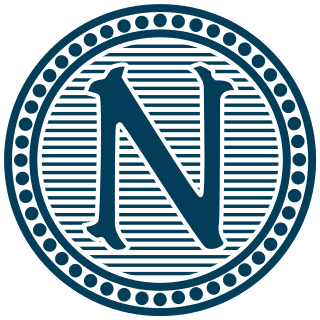
The Nobel Foundation is a private institution founded on 29 June 1900 to manage the finances and administration of the Nobel Prizes. The foundation is based on the last will of Alfred Nobel, the inventor of dynamite.

Lars Johan Wictor Gyllensten was a Swedish author and physician, and a member of the Swedish Academy.

A Nobel Committee is a working body responsible for most of the work involved in selecting Nobel Prize laureates. There are six awarding committees from four institutions, one for each Nobel Prize.
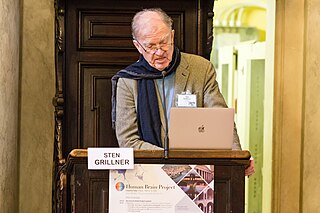
Sten Grillner is a Swedish neurophysiologist and distinguished professor at the Karolinska Institute's Nobel Institute for Neurophysiology in Stockholm where he is the director of that institute. He is considered one of the world's foremost experts in the cellular bases of motor behaviour. His research is focused on understanding the cellular bases of motor behaviour; in particular, he has shown how neuronal circuits in the spine help control rhythmic movements, such as those needed for locomotion. He is the current secretary general of the International Brain Research Organization (IBRO) and president of the Federation of European Neuroscience Societies (FENS). For his work, in 2008 he was awarded the $1 million Kavli Prize for deciphering the basic mechanisms which govern the development and functioning of the networks of cells in the brain and spinal cord. This prize distinguish the recipient from the Nobel prizes in basic medical sciences.
Klas Kärre is a Swedish immunologist.
The Nobel Assembly at the Karolinska Institute is a body at Karolinska Institute that awards the Nobel Prize in Physiology or Medicine. It is headquartered in the Nobel Forum on the grounds of the Karolinska Institute campus. Originally the Nobel Assembly was not a formal body but rather the collective of all professors at Karolinska Institute. In 1977, the Nobel Assembly became a separate private organization hosted by Karolinska Institute. Until 1984, all Karolinska Institute professors belonged to the Assembly; since 1984, the membership has been restricted to 50 Karolinska Institute professors.

Göran K. Hansson, is a Swedish physician and scientist.
The Nobel Committee for Physiology or Medicine is the Nobel Committee responsible for proposing laureates for the Nobel Prize in Physiology or Medicine. The Nobel Committee for Physiology or Medicine is appointed by the Nobel Assembly at the Karolinska Institute, a body of 50 members at Karolinska Institute that is formally a separate body not part of the institute itself. It consists of professors of physiology or medical subjects active at Karolinska Institute. Other than the five ordinary members, ten associated members are appointed each year, for that year only.
Rolf Zetterström was a Swedish pediatrician. He was Professor of Pediatrics at the Karolinska Institute fra 1962 until his retirement in 1986. Zetterström also had a central role in the institutions awarding the Nobel Prize in Physiology or Medicine.
Hans-Olov Adami is a Swedish physician, academic and public health researcher. He established the largest epidemiologic and biostatistics research unit in Sweden, the Department of Medical Epidemiology and Biostatistics at the Karolinska Institutet. He is a former chair of the Department of Epidemiology at the Harvard School of Public Health in Boston, US.
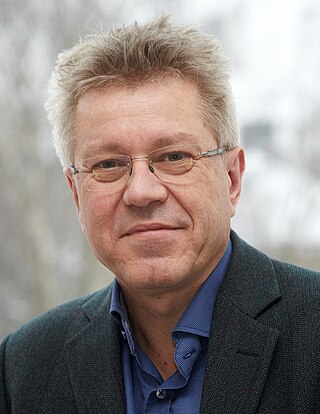
Ole Kiehn is a Danish-Swedish neuroscientist. He is Professor of Integrative Neuroscience at the Department of Neuroscience, University of Copenhagen, Denmark, and professor of neurophysiology at Karolinska Institute, Sweden.

Rikard Holmdahl is a Swedish physician and immunologist. He was appointed as a full professor and the head of Medical Inflammation Research (MIR) unit at Lund University in 1993. In 2008, Rikard and his whole research group were recruited to Karolinska Institute. His team was the first to discover and positionally clone a single nucleotide polymorphism at the Ncf1 gene causing susceptibility to autoimmune diseases in rat models. Rikard was an adjunct member of the Nobel Committee for physiology or medicine between 2016 and 2021, and was ranked 2nd among the top immunology scientists in Sweden in 2021.
The 2021 Nobel Prize in Physiology or Medicine was jointly awarded to the American physiologist David Julius and Armenian-American neuroscientist Ardem Patapoutian "for the discovery of receptors for temperature and touch." During the award ceremony on December 10, 2021, Nobel Assembly at Karolinska Institutet member Patrik Ernfors expressed:
"The 2021 Nobel Prize laureates have explained fundamental mechanisms underpinning how we sense the world within and around us. Our temperature and touch sensors are used all the time in every day of our lives. They continuously keep us updated about our environment, and without them even the simplest of our daily tasks would be impossible to perform."
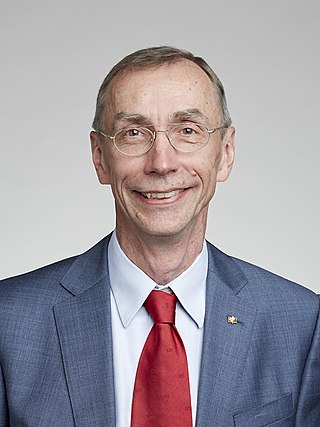
The 2022 Nobel Prize in Physiology or Medicine was awarded to the Swedish geneticist Svante Pääbo "for his research in the field of genomes of extinct hominins and human evolution". It was announced by Thomas Perlmann, secretary of the Nobel Assembly at Karolinska Institutet in Stockholm, Sweden, on 3 October 2022.
Abdel El Manira is a Moroccan-Swedish neuroscientist and distinguished professor at the Karolinska Institute in Stockholm, Sweden. He is widely recognized for his research on the neural circuits that control movement, focusing on how motor circuits in the spinal cord contribute to locomotion and motor behavior. El Manira currently leads the Neurobiology of Motor Actions Laboratory at the Karolinska Institute, where he investigates the fundamental principles of motor circuit organization and function.












